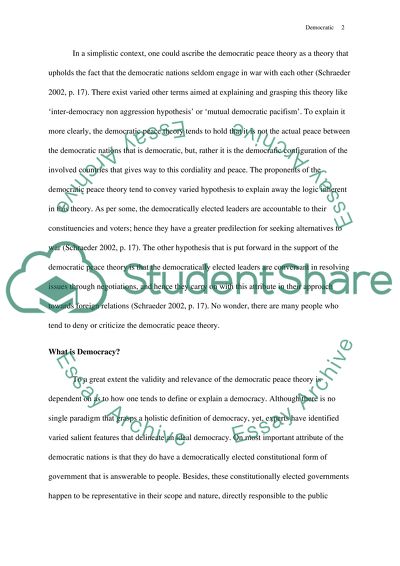Cite this document
(“Democratic Peace Theory Essay Example | Topics and Well Written Essays - 2000 words”, n.d.)
Retrieved from https://studentshare.org/history/1453999-what-is-the-democratic-peace-theory-what-are-its
Retrieved from https://studentshare.org/history/1453999-what-is-the-democratic-peace-theory-what-are-its
(Democratic Peace Theory Essay Example | Topics and Well Written Essays - 2000 Words)
https://studentshare.org/history/1453999-what-is-the-democratic-peace-theory-what-are-its.
https://studentshare.org/history/1453999-what-is-the-democratic-peace-theory-what-are-its.
“Democratic Peace Theory Essay Example | Topics and Well Written Essays - 2000 Words”, n.d. https://studentshare.org/history/1453999-what-is-the-democratic-peace-theory-what-are-its.


